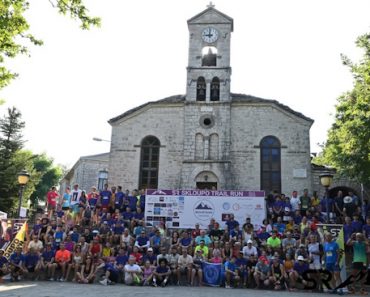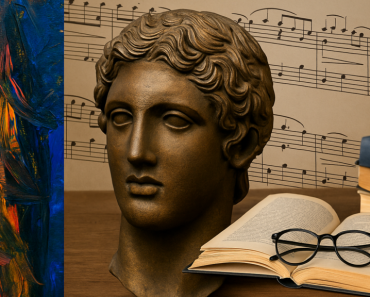Petros Loukas Chalkias, the clarinet virtuoso, has passed away at the age of 91.
The news was shared on social media by fellow musicians, including Manos Achalinotopoulos, who wrote on Facebook: “Safe journey, my elder! Farewell, my soul.”
Yannis Kapsalis also wrote on Facebook: “All of Epirus and all of Greece are mourning today.”
Who was Petros Loukas Chalkias?
His name is inscribed in golden letters in the history of Greek musical tradition. Petros Loukas Chalkias, the leading master of the Epirus clarinet, was not just a musician but an entire institution. A man who devoted his life to preserving, maintaining, and spreading the music of Epirus, turning it into a global cultural ambassador for Greece.
Early years in Delvinaki
Born in 1934 in Delvinaki, Pogoni, within the rich musical tradition of Epirus, Petros Loukas grew up surrounded by the sounds of clarinet, lute, and mourning laments that were part of daily life. His father, Pericles Chalkias, was also a musician. Although initially hesitant to let his son follow in his footsteps, he soon recognized his son’s talent.
At the age of 11, Petros Loukas began learning the clarinet under the tutelage of Philippos Rountas, one of the leading clarinetists of the time. His gift was evident from early on. He quickly became known throughout Epirus for his clear tone, his technical mastery, but above all for the soul he poured into every performance.
Emigration and performances in the U.S.
In the 1960s, following the wave of emigration that carried thousands of Greeks abroad, Petros Loukas Chalkias moved to the United States. He lived there for two decades, without ever losing touch with Greek musical tradition. In fact, his time in the U.S. elevated him as an ambassador of Epirus music to the Greek diaspora, performing at traditional music festivals and universities.
His presence in America was particularly significant in spreading Greek folk music, introducing new audiences to the richness of Epirus sounds through his performances. It is no coincidence that he even had the honor of performing at the White House, a symbolic recognition of Greek musical heritage.
Return to Greece and recognition
In 1979, he permanently returned to Greece, bringing with him the experience and knowledge he had gained abroad. His recordings quickly gained both public and critical acclaim. With albums such as Laments and Turns and Roads of the Soul, Petros Loukas Chalkias brought Epirus music to the forefront of the Greek recording industry, at a time when traditional music was reclaiming its rightful place in the public sphere.
His music was characterized by a deep respect for the simplicity and style of Epirus tradition, combined with a unique expressiveness that elevated every lament, every skaros (improvisational melody), and every festive tune. His playing was not just technically perfect, but deeply lived, drawn directly from the land and its people.
A teacher to new generations
Beyond being a virtuoso, Petros Loukas Chalkias was also a great teacher. He taught dozens of younger musicians, passing on not only technique but also the philosophy of Epirus music, based on simplicity, emotion, and lived experience. Among his students are today’s clarinetists, lute players, and singers who continue the tradition with respect and authenticity.
He always believed that the clarinet is “the voice of the soul.” “You don’t play the clarinet — you speak through it,” he used to say, emphasizing that the instrument is not just a technical tool, but an extension of the musician’s inner world.
Petros Loukas Chalkias remained active into old age, performing concerts in Greece and abroad, participating in traditional music festivals, and recording. He received many honors, but always remained humble, faithful to his roots and his art.
He was not only a great artist but a living vessel of memory, history, and culture. His legacy is enormous: hundreds of recordings, countless live performances, hundreds of students, and above all, the continued existence of the Epirus sound.
At a time when traditions are often lost in the noise of the modern era, the figure of Petros Loukas Chalkias will always stand as a beacon of authenticity. Epirus, Greece, and the global music scene owe much to the man who made the clarinet speak the deepest human language: that of the soul.
Ask me anything
Explore related questions






